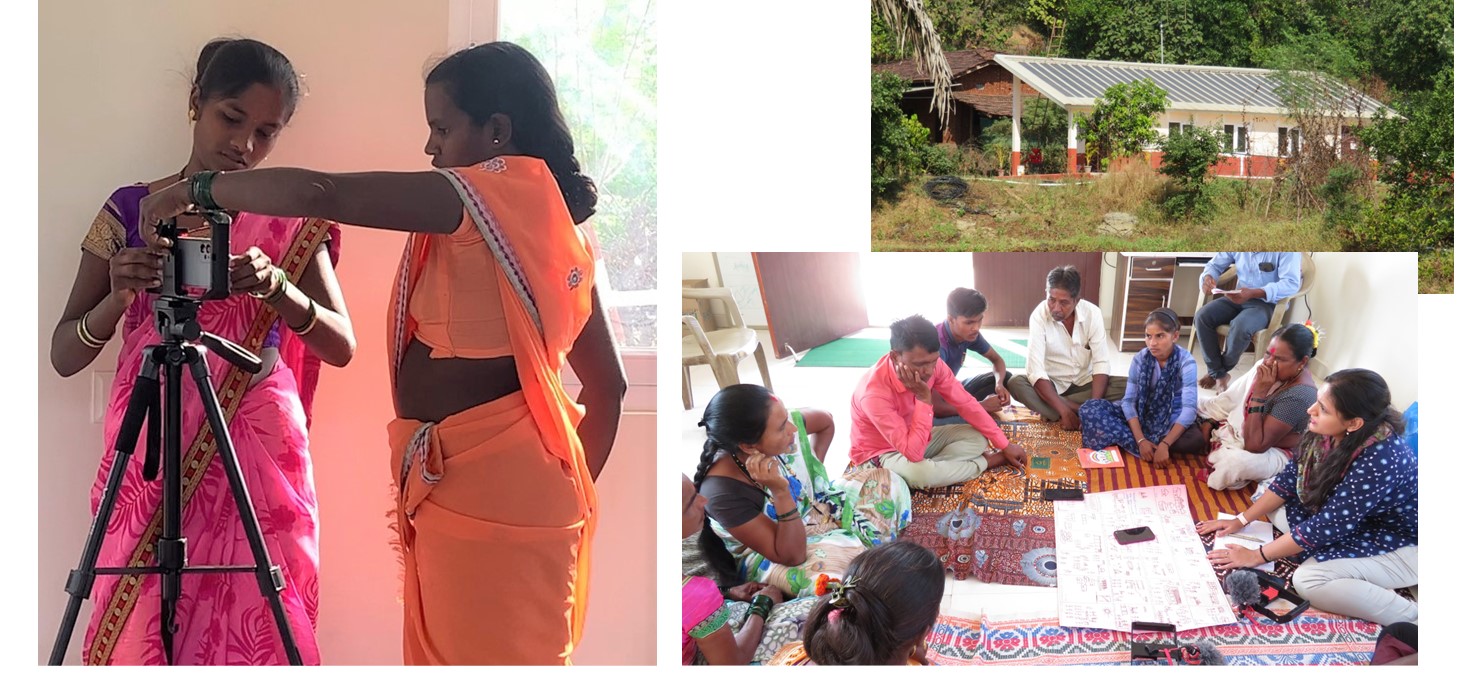
A film documenting the transformative effects of a solar building in a village in India developed through a partnership led by Swansea University will be featured at the prestigious British Academy Summer Showcase.
The partnership includes other UK and Indian institutions as well as industrial partners and third sector organisations.
For the first time, as part of this free event, the Academy will be working with the Institute of Contemporary Arts (ICA) on a series of film screenings, including How has a solar building impacted villagers in India? by Dr Carol Maddock.
The film provides an insight into the significant changes experienced by the Khuded community in Maharashtra following the introduction of the Solar OASIS building. This is India's first active building designed by SUNRISE, a project led by Swansea University that addresses global energy poverty through the development of next-generation solar technologies.
While the success of projects like this is usually measured in terms of technical or economic achievements, the team sought to understand what it looked like from the viewpoint of the villagers who had helped co-produce aspects of the building’s functions and were now using it and working with the new equipment.
Through funding from the British Academy and Leverhulme Small Research Grants, the Solar OASIS community involvement team have worked with InsightShare and the Tata Institute of Social Sciences to give villagers the means to create their own short videos exploring the impact of the building from their perspective.
Dr Maddock, Research Officer in Public Health, said: "We do not know if renewable energy transition is equitably beneficial, particularly for those reliant on fossil fuels in everyday existence, like in India. Major changes are expected, so active participation of those likely to be impacted is crucial.
"Our research used participatory video with the most significant change approach with villagers to provide a deeper contextual understanding of renewable energy transitions following access to a solar community building.
"Generating, valuing and sharing knowledge from different perspectives is essential to understand what changes or actions may be required during renewable energy transitions, and the points raised in this video have already proposed several future improvements and plans."
As well as a series of special screenings, the free event will feature a jam-packed programme of pop-up talks, performances, panel discussions and workshops from across the SHAPE (Social Sciences, Humanities and the Arts for People and the Economy) disciplines.
Professor Julia Black, President of the British Academy, said: "We are truly excited to welcome people back to the British Academy for our Summer Showcase, which since launching in 2018, has gone from strength to strength.
"Sharing some of the most fascinating and dynamic insights and discoveries the SHAPE disciplines have to offer is, without a doubt, one of the highlights of our year. This year we'll be hosting a huge variety of in-person and online events spanning subjects that will appeal to anyone curious about the world we live in, about peoples, societies and cultures past, present and future."
